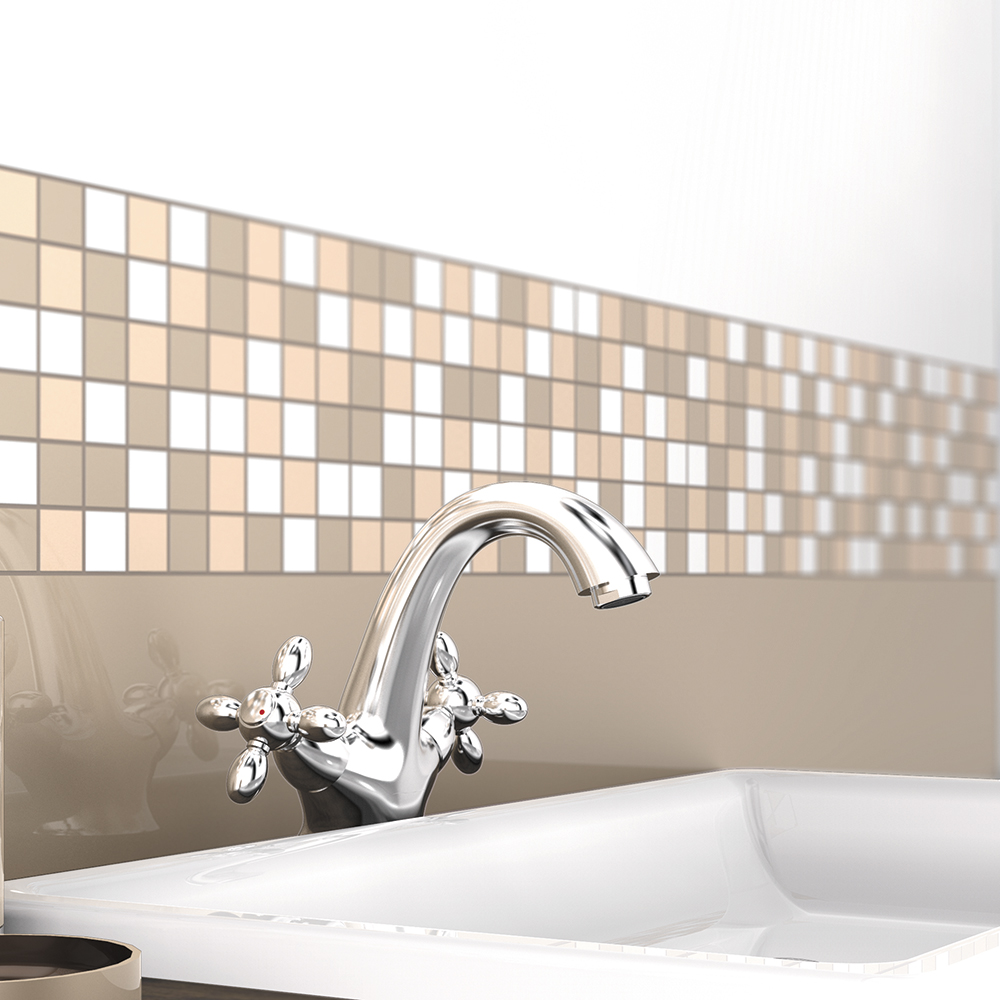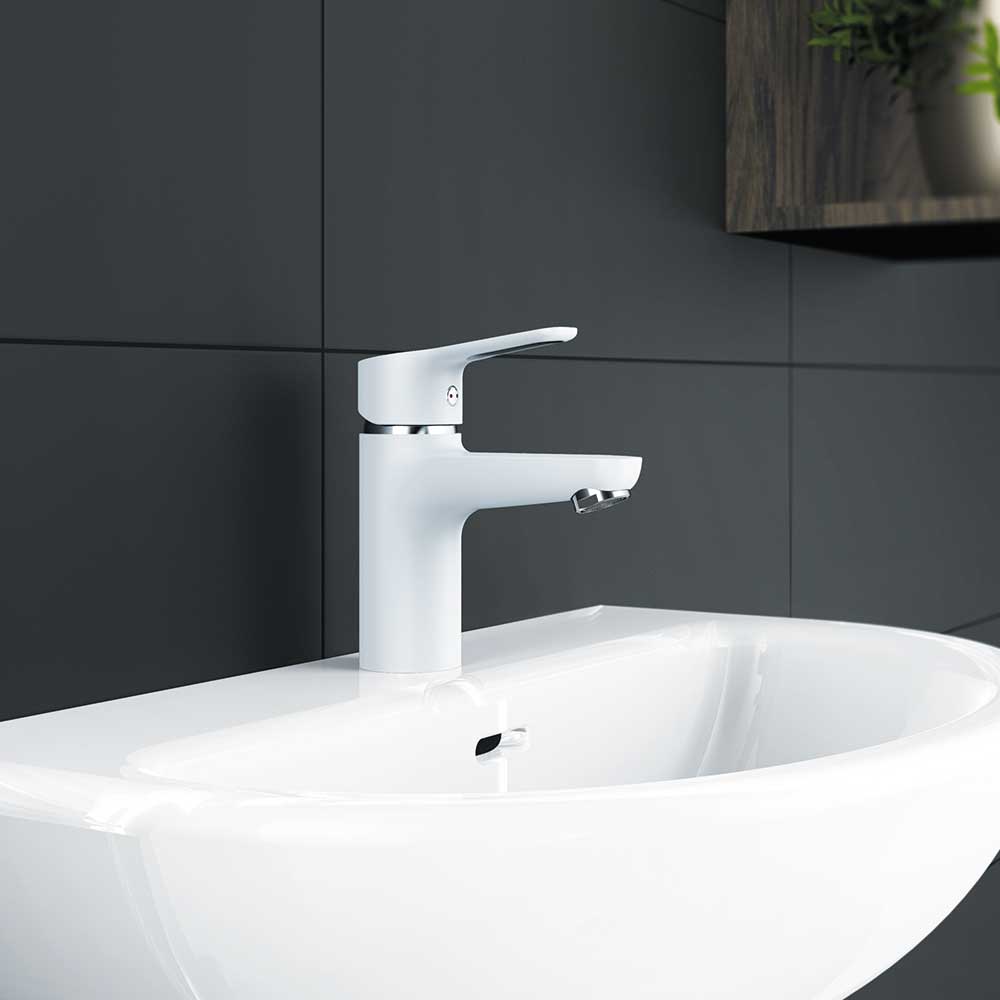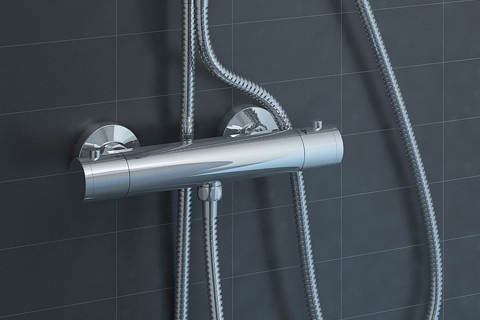How to choose a high quality faucet?
Specialists estimated that the average family switches water on and off in a faucet up to ten thousand times per year. Only a high quality and reliable faucets can withstand such a load.
According to the construction and design, the faucets are divided into several types:

Two valves
With two valves/levers for both, hot and cold water.
- Valves:
- Affordable price
- Simplicity of construction (for installation and repair)
- More difficult to set the temperature and water pressure
- Ceramic valves:
- Longevity
- Simplicity of construction (for installation and repair)
- Convenient pressure and temperature control (rotation angle 180°)
- Ceramic valves with "Flow control" function:
- Three-stage valves provide a more accurate and convenient adjustment of water pressure, thereby reducing its consumption (rotation angle 270°)
One lever
With this type of faucet, water temperature and pressure are controlled smoothly with one lever. The main element is a ceramic cartridge.
- Easy one-handed adjustment
- Durability (ceramic cartridges average service time – 10 years)


Thermostatic
These faucets are able to provide water with maintaining the set temperature and protect users from potential burns if water temperature and/or pressure changes.
The thermostatic faucets have two rotating levers. The first is designed to regulate water pressure, and the second – to accurately set water temperature (temperature scale indicated on it). It is enough to set the temperature once, and then you can only change the pressure.
Touchless (sensory). A faucet uses infrared signal, which turns on as soon as it detects a user's hand in the sensor's working area. Such faucets are popular to use in public buildings.

